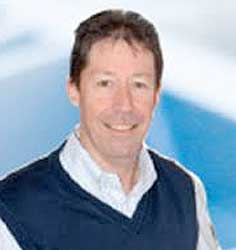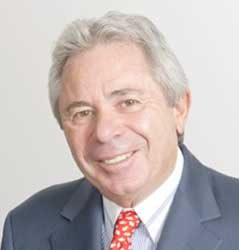
Top stories






More news


Marketing & Media
Ads are coming to AI. Does that really have to be such a bad thing?














At a presentation on the group's interim results to March‚ which showed a sharp drop in profits‚ he said a decentralised structure would enable each division to take full responsibility for its business‚ making Adcock more flexible and agile in the market.
Asked how long it would take to improve profitability‚ Wakeford said management was aware of the urgency but it was difficult to put a timeline on it. "I don't believe it will be a quick fix‚" he said‚ but he would like to see improvement in 12 to 18 months.
The company warned the full financial effect of the changes had not been finalised and could result in further spending and impairments that would affect results for the period to June. Adcock is changing its financial year-end to June from September.
Wakeford was appointed Chief Executive after Adcock's major shareholder‚ Bidvest‚ was strongly critical of previous management.
The group was recently the target of a bid from CFR Pharmaceuticals of Chile‚ but Bidvest‚ with a 34.5% stake‚ blocked the offer. Bidvest's Chief Executive Brian Joffe is now chairman of Adcock Ingram.
The group reported interim operating profit of just R1.88m compared with R425.4m in the same period last year‚ which management described as "regrettable and unfortunate".

Gross profits were under pressure from an unfavourable product sales mix and a weaker rand‚ which affected the cost of imported ingredients.
This was compounded by an under-recovery of fixed costs as some facilities were running below capacity.
After higher finance costs‚ from the acquisition of Cosme in India‚ and tax payments‚ Adcock made a headline loss of 23c per share‚ from a previous headline profit of 188.1c per share.
Management said if it were not for the R91m in costs incurred on the CFR bid‚ it would have reported headline earnings of 29.1c per share.
The protracted corporate and regulatory processes involved in the takeover also absorbed management attention.
Old Mutual Investment Group Equities Analyst Philip Short said Adcock's numbers were weak‚ as expected.
The operating margin declined from 17% to 5% and the outlook did little to confirm a much-needed turnaround in the next six to 12 months.
"In addition‚ Adcock has lost market share across the majority of its divisions‚" Short said.
"(New) management has mentioned they are working on a restructuring programme and hoping to turn the business around. Unfortunately‚ some aspects such as the weaker rand and single-exit-price‚ as set by the Department of Health‚ are out of their hands‚" he said.
Group turnover‚ including acquisitions in India and Zimbabwe‚ rose 3.4% to R2.4bn.
The biggest geographical segment is southern Africa‚ where sales fell 1.7%.
This reflected lower sales of over-the-counter products because of the decline in independent wholesalers‚ strong competition and consumers "buying down" because of economic pressure. But turnover of prescription medicines rose through new products and tenders‚ and the hospital division also grew sales.
Management said it was concerned that in South Africa the Department of Health's single-exit-price increase of 5.8% for prescription‚ over-the-counter and hospital products was not enough to offset the weaker rand‚ local wages and utilities inflation.